-
 bitcoin
bitcoin $101752.865364 USD
-1.09% -
 ethereum
ethereum $3382.985899 USD
-1.38% -
 tether
tether $0.999658 USD
0.04% -
 xrp
xrp $2.272505 USD
-1.51% -
 bnb
bnb $989.089004 USD
0.14% -
 solana
solana $156.962612 USD
-3.08% -
 usd-coin
usd-coin $0.999776 USD
0.01% -
 tron
tron $0.290786 USD
-0.69% -
 dogecoin
dogecoin $0.174594 USD
-2.86% -
 cardano
cardano $0.560085 USD
-3.55% -
 hyperliquid
hyperliquid $40.023704 USD
-5.75% -
 chainlink
chainlink $15.324649 USD
-2.78% -
 bitcoin-cash
bitcoin-cash $493.576540 USD
-3.52% -
 zcash
zcash $571.320038 USD
-12.05% -
 stellar
stellar $0.280066 USD
-4.26%
What are zero-knowledge proofs and how do they enable privacy on a blockchain?
Zero-knowledge proofs enable secure, private blockchain transactions by verifying data without revealing it, enhancing privacy and scalability across decentralized systems.
Nov 08, 2025 at 07:59 pm
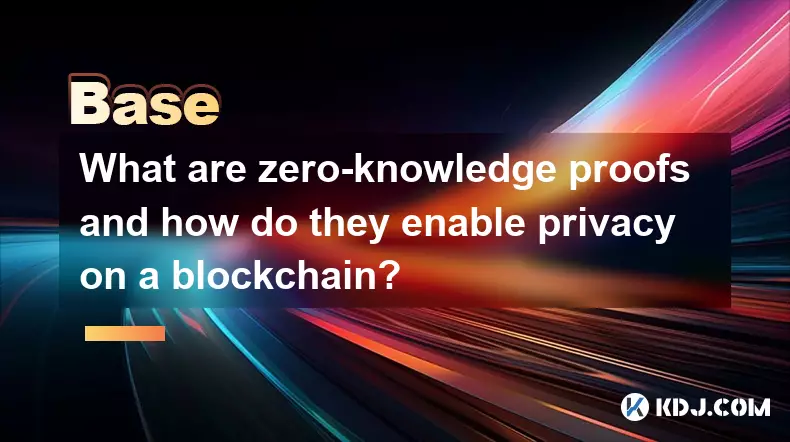
Understanding Zero-Knowledge Proofs in Cryptography
1. Zero-knowledge proofs (ZKPs) are cryptographic protocols that allow one party, known as the prover, to demonstrate to another party, the verifier, that a specific statement is true without revealing any information beyond the validity of the statement itself. This means that someone can prove knowledge of a secret—like a private key or transaction detail—without disclosing the secret.
2. The concept hinges on three core properties: completeness, soundness, and zero-knowledge. Completeness ensures that if the statement is true, an honest verifier will be convinced by an honest prover. Soundness guarantees that no dishonest prover can convince the verifier of a false statement. The zero-knowledge property ensures that the verifier learns nothing other than the truth of the statement.
3. For instance, imagine a scenario where Alice wants to prove to Bob that she knows the password to a system without actually telling him the password. A zero-knowledge proof would allow her to do exactly that—convince Bob she possesses the correct password while revealing no part of it.
4. These proofs are constructed using advanced mathematical techniques such as elliptic curve pairings, polynomial commitments, and interactive challenge-response mechanisms. Non-interactive variants like zk-SNARKs (Zero-Knowledge Succinct Non-Interactive Argument of Knowledge) have become particularly influential in blockchain applications due to their efficiency.
5. Because ZKPs eliminate the need to expose underlying data, they serve as a powerful tool for maintaining confidentiality in digital interactions, especially in environments where transparency must be balanced with privacy.
How Zero-Knowledge Proofs Enhance Blockchain Privacy
1. Public blockchains like Bitcoin and Ethereum operate on full transparency—every transaction is visible to all participants. While this promotes auditability and trustlessness, it also compromises user privacy. Zero-knowledge proofs address this limitation by enabling transactions to be validated without exposing sender, receiver, or amount.
2. In privacy-focused cryptocurrencies such as Zcash, zk-SNARKs are used to encrypt transaction data while still allowing nodes to verify that inputs equal outputs and that no new coins are created out of thin air. This ensures compliance with monetary rules without revealing who sent what to whom.
3. Another implementation appears in layer-2 scaling solutions like zk-Rollups, where thousands of transactions are bundled off-chain and verified via a single zero-knowledge proof posted to the main chain. Not only does this reduce congestion, but it also obscures individual transaction details from public view.
4. By embedding ZKPs into smart contracts, decentralized applications can authenticate user credentials—such as age or residency—without accessing personal identifiers. This enables compliant yet private interactions in areas like DeFi and identity management.
5. As regulatory scrutiny increases, the ability to conduct verifiable audits using zero-knowledge techniques—where authorities confirm legitimacy without seeing sensitive data—becomes increasingly valuable for enterprises adopting blockchain technology.
Challenges and Limitations of Implementing ZKPs
1. Despite their advantages, zero-knowledge proofs require substantial computational resources to generate and verify, especially for complex statements. This creates barriers for lightweight devices or high-frequency trading environments.
2. Trusted setup ceremonies are necessary for certain types of ZKPs, such as zk-SNARKs. During these events, initial cryptographic parameters are generated, and if the secret randomness used in the process is not destroyed, it could allow counterfeit proofs to be created. This introduces a centralization risk.
3. Developers face steep learning curves when integrating ZKPs into existing systems due to the complexity of the underlying mathematics and limited tooling support. Writing secure circuits for proving statements demands expertise beyond typical blockchain development.
4. Verification time, though fast compared to proving, still adds latency when deployed at scale. On-chain verification costs in gas fees can be prohibitive unless optimized through batching or specialized hardware.
5. Interoperability between different ZKP systems remains limited. Formats like zk-SNARKs, zk-STARKs, and Bulletproofs are not directly compatible, making cross-platform adoption challenging.
Frequently Asked Questions
What is the difference between zk-SNARKs and zk-STARKs?zk-SNARKs rely on elliptic curve cryptography and require a trusted setup, whereas zk-STARKs use hash functions and are transparent—meaning they do not need a trusted setup. zk-STARKs are also more resistant to quantum attacks but typically produce larger proof sizes.
Can zero-knowledge proofs be used outside of cryptocurrency?Yes, ZKPs have applications in secure voting systems, private authentication, supply chain verification, and confidential machine learning. They enable verification of computations or identities without exposing raw data.
Do zero-knowledge proofs make blockchains fully anonymous?Not entirely. While ZKPs hide transaction contents, metadata such as timing, IP addresses, and network patterns may still leak information. Additional measures like mixers or onion routing are often needed for stronger anonymity.
Disclaimer:info@kdj.com
The information provided is not trading advice. kdj.com does not assume any responsibility for any investments made based on the information provided in this article. Cryptocurrencies are highly volatile and it is highly recommended that you invest with caution after thorough research!
If you believe that the content used on this website infringes your copyright, please contact us immediately (info@kdj.com) and we will delete it promptly.
- Ripple (XRP) in 2026: Hold or Fold? A Look at XRP's Future and Emerging DeFi Alternatives
- 2025-11-08 18:35:01
- Zcash ZEC Coin Price Explosion: From Privacy Niche to Center Stage
- 2025-11-08 18:55:01
- Berachain Price Prediction: Navigating the Honeycomb Hype in Crypto
- 2025-11-08 18:55:01
- Arthur Hayes, Gold, and Bitcoin: A Modern Monetary Trinity?
- 2025-11-08 19:15:01
- Shiba Inu's Next Move: Navigating a Shifting Market
- 2025-11-08 19:20:01
- Pakistan's Crypto Crossroads: Balancing Opportunity with Asset-Backed Realities
- 2025-11-08 19:20:01
Related knowledge
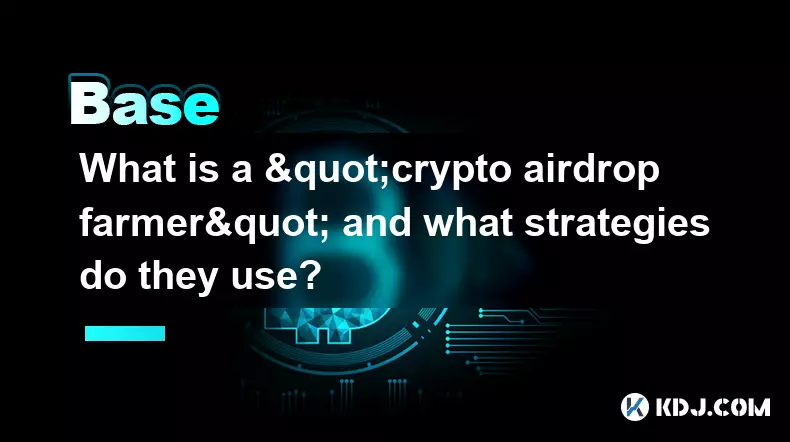
What is a "crypto airdrop farmer" and what strategies do they use?
Nov 09,2025 at 03:39pm
What Is a Crypto Airdrop Farmer?1. A crypto airdrop farmer is an individual who actively participates in blockchain projects to qualify for free token...

How does a crypto insurance protocol work?
Nov 08,2025 at 12:39am
Understanding Crypto Insurance Protocols1. A crypto insurance protocol operates by offering financial protection against losses incurred from digital ...
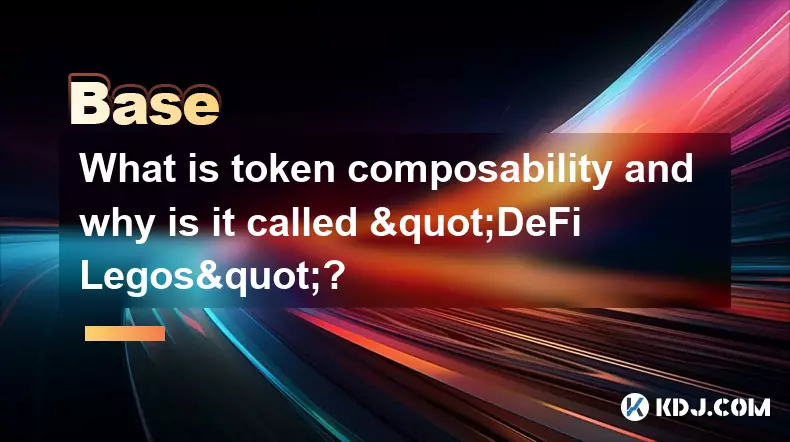
What is token composability and why is it called "DeFi Legos"?
Nov 09,2025 at 06:39am
Bitcoin's Role in Decentralized Finance1. Bitcoin remains the cornerstone of decentralized finance, serving as a benchmark for value and trustlessness...

What is an "exploit" versus a "hack" in the context of smart contracts?
Nov 09,2025 at 12:40am
Understanding Exploits in Smart Contracts1. An exploit refers to the utilization of a known vulnerability within a smart contract’s code to gain unint...
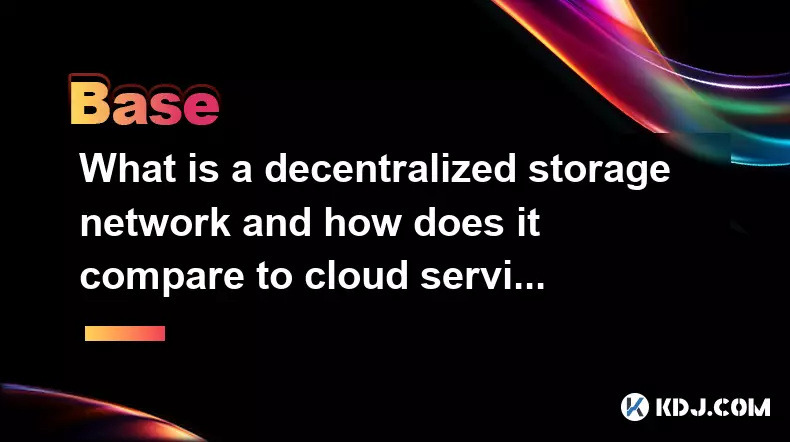
What is a decentralized storage network and how does it compare to cloud services?
Nov 07,2025 at 11:59pm
Understanding Decentralized Storage Networks1. A decentralized storage network distributes data across a peer-to-peer infrastructure rather than relyi...
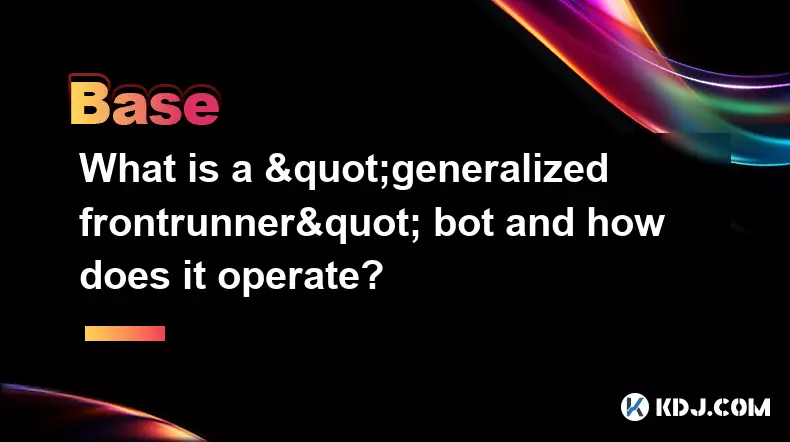
What is a "generalized frontrunner" bot and how does it operate?
Nov 09,2025 at 02:00pm
Understanding the Generalized Frontrunner BotA generalized frontrunner bot is an automated trading program deployed on blockchain networks, particular...

What is a "crypto airdrop farmer" and what strategies do they use?
Nov 09,2025 at 03:39pm
What Is a Crypto Airdrop Farmer?1. A crypto airdrop farmer is an individual who actively participates in blockchain projects to qualify for free token...

How does a crypto insurance protocol work?
Nov 08,2025 at 12:39am
Understanding Crypto Insurance Protocols1. A crypto insurance protocol operates by offering financial protection against losses incurred from digital ...

What is token composability and why is it called "DeFi Legos"?
Nov 09,2025 at 06:39am
Bitcoin's Role in Decentralized Finance1. Bitcoin remains the cornerstone of decentralized finance, serving as a benchmark for value and trustlessness...

What is an "exploit" versus a "hack" in the context of smart contracts?
Nov 09,2025 at 12:40am
Understanding Exploits in Smart Contracts1. An exploit refers to the utilization of a known vulnerability within a smart contract’s code to gain unint...

What is a decentralized storage network and how does it compare to cloud services?
Nov 07,2025 at 11:59pm
Understanding Decentralized Storage Networks1. A decentralized storage network distributes data across a peer-to-peer infrastructure rather than relyi...

What is a "generalized frontrunner" bot and how does it operate?
Nov 09,2025 at 02:00pm
Understanding the Generalized Frontrunner BotA generalized frontrunner bot is an automated trading program deployed on blockchain networks, particular...
See all articles





















![The Graph Price Prediction [GRT Crypto Price News Today] The Graph Price Prediction [GRT Crypto Price News Today]](/uploads/2025/11/07/cryptocurrencies-news/videos/690d4df44fe69_image_500_375.webp)




















































